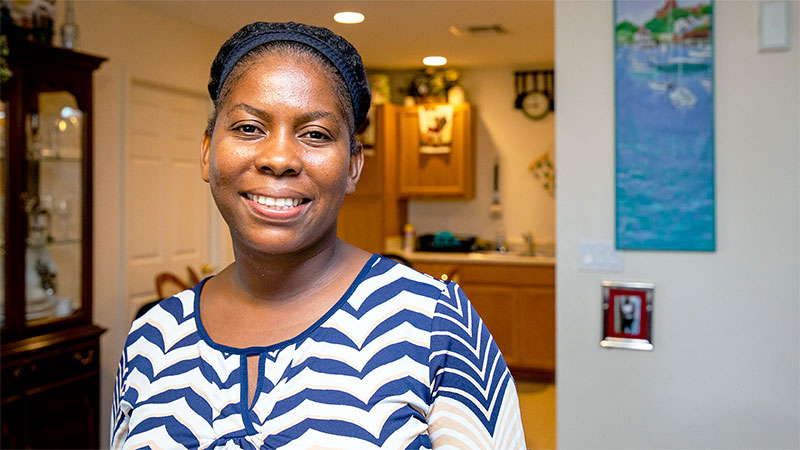
Back in the 1980s, the City of New York sold a block of abandoned houses to a group of local congregations who renovated them and sold them to families living in public housing, just across the street, for $30,000. That street became a dividing line between families with “children who grew up to do better than their parents and those who did not,” according to a 2018 report on what became known as the Nehemiah Homes.
In 2017, Habitat for Humanity of Georgia sponsored a study by Georgia Tech and Kennesaw State to find out what happens to families who move into Habitat-built homes. That research revealed that typical Habitat home buyers feel safer in their homes, get along better as a family, are able to save more for the future, are confident their kids will attend college, and either reduce or eliminate their need for public assistance.
Now, Athens Area Habitat is embarking on a project — in a county with among the lowest home ownership rates and highest wealth inequality rates in the nation — that will transform families from renters to homeowners within a single school attendance zone and, for the first time, measure the educational, financial, and social outcomes for those families over a period of several years. This new neighborhood, dubbed Micah’s Creek, will also be the location of Lydia’s Second Home, phase-two of a unique non-profit partnership that provides subsidized housing for formerly homeless students seeking to beat the odds by earning their college degrees.
Micah’s Creek will offer the economic foothold of home ownership to families earning below 80% of area median income, with preference for those below 60%. Because the homes will be Habitat-built, buyers will have access to zero-interest mortgages, keeping their costs manageable (monthly mortgage payment are estimated at $399 plus tax and insurance). By offering housing to area families, working students, veterans, and local musicians and artists who qualify for Habitat mortgages, Micah’s Creek seeks to create a culturally blended community near the city’s downtown with direct access to public transportation and the developing Firefly Trail pedestrian and bike route.
In cooperation with W&A Engineering, Athens Area Habitat is designing a neighborhood that cultivates an attractive viewshed for adjoining homes, minimizes evaporation from the creek and planned retention ponds, and conserves pathways for wildlife around the development. Highly efficient homes will simultaneously reduce resources needed to construct and maintain the houses while lowering monthly bills for homeowners. And our planned partnership with UGA to measure outcomes for residents, especially schoolchildren, will enable the project to serve as a model for similar developments nationwide.
The Micah’s Creek and Lydia’s Second Home projects — currently approved for around 40 single-family houses, 15 two-bedroom bungalows, and 11 tiny homes — have together already garnered more than $9 million in pledged state, federal, and municipal funding. Unlike public housing projects which are a net cost for the community, Micah’s Creek will increase tax revenues while reducing dependence on public assistance payouts for homeowners. For the city, it’s an opportunity to increase upward mobility for historically disadvantaged populations and create opportunities for generational wealth-building which other housing solutions, such as mixed income rentals, cannot begin to approach.
But even with state and federal support to get us started, we’re still only about 60% to fully funding this ambitious new project, which we view as a template for similar neighborhoods around the nation. If you’d like to be a part of this effort, consider contributing your financial support in any amount. Whether you have five dollars to spare, or you represent an organization with five figures to invest, your donation makes a difference by helping us to build our community.
Together, we are doing great things. Thank you.
To learn more about this transformational project by Athens Area Habitat, check out this short video feature: